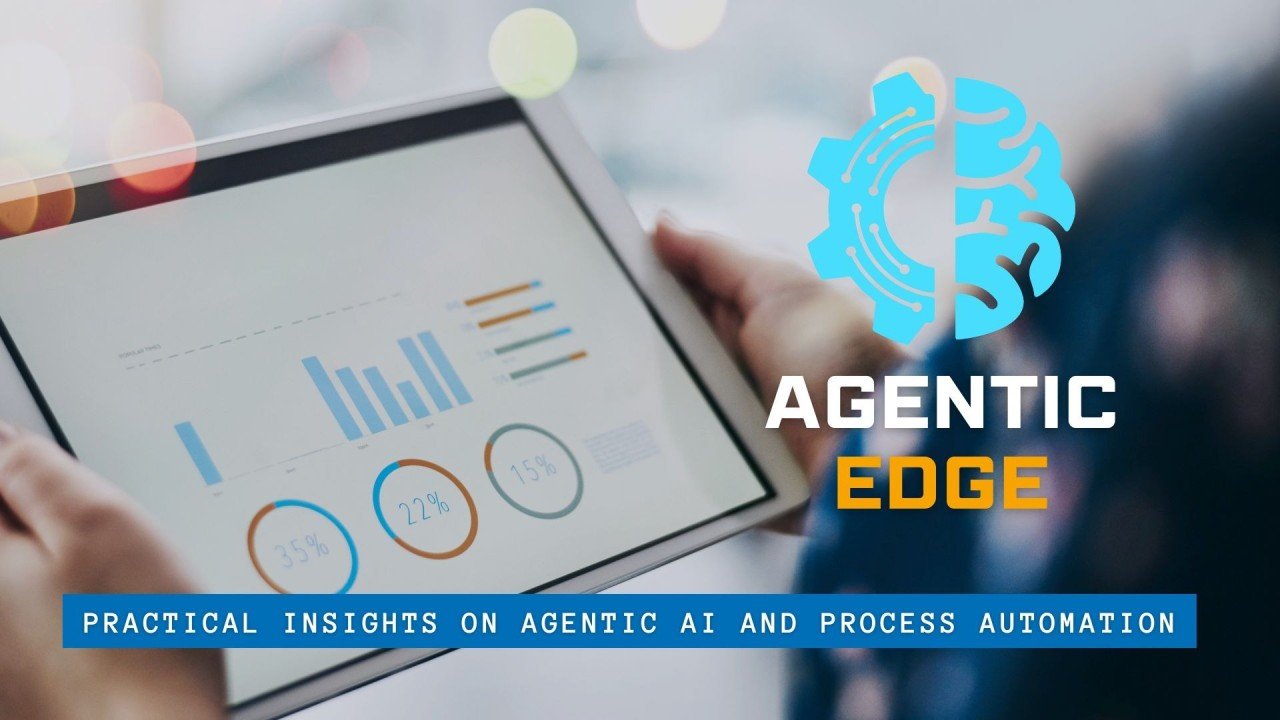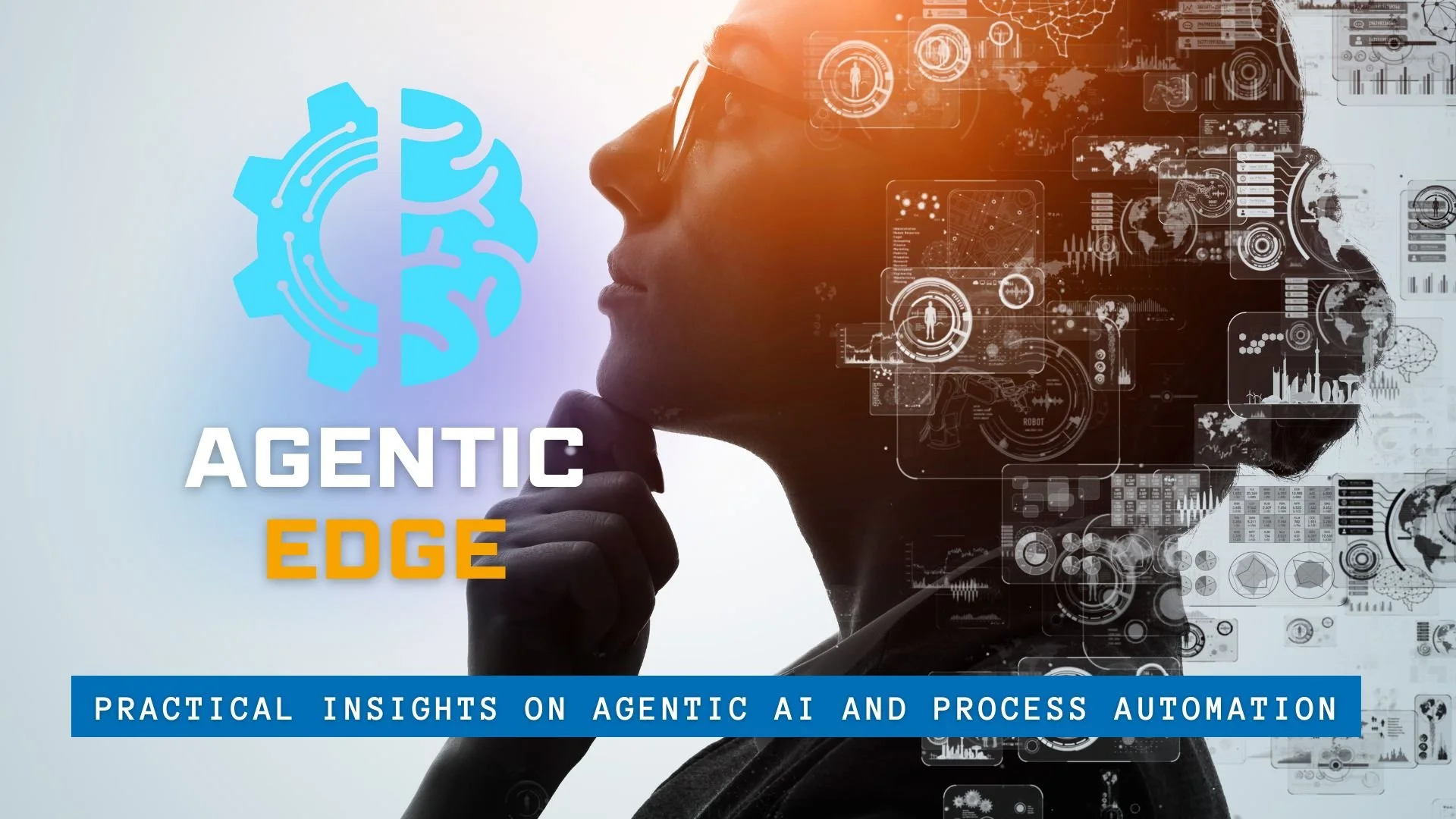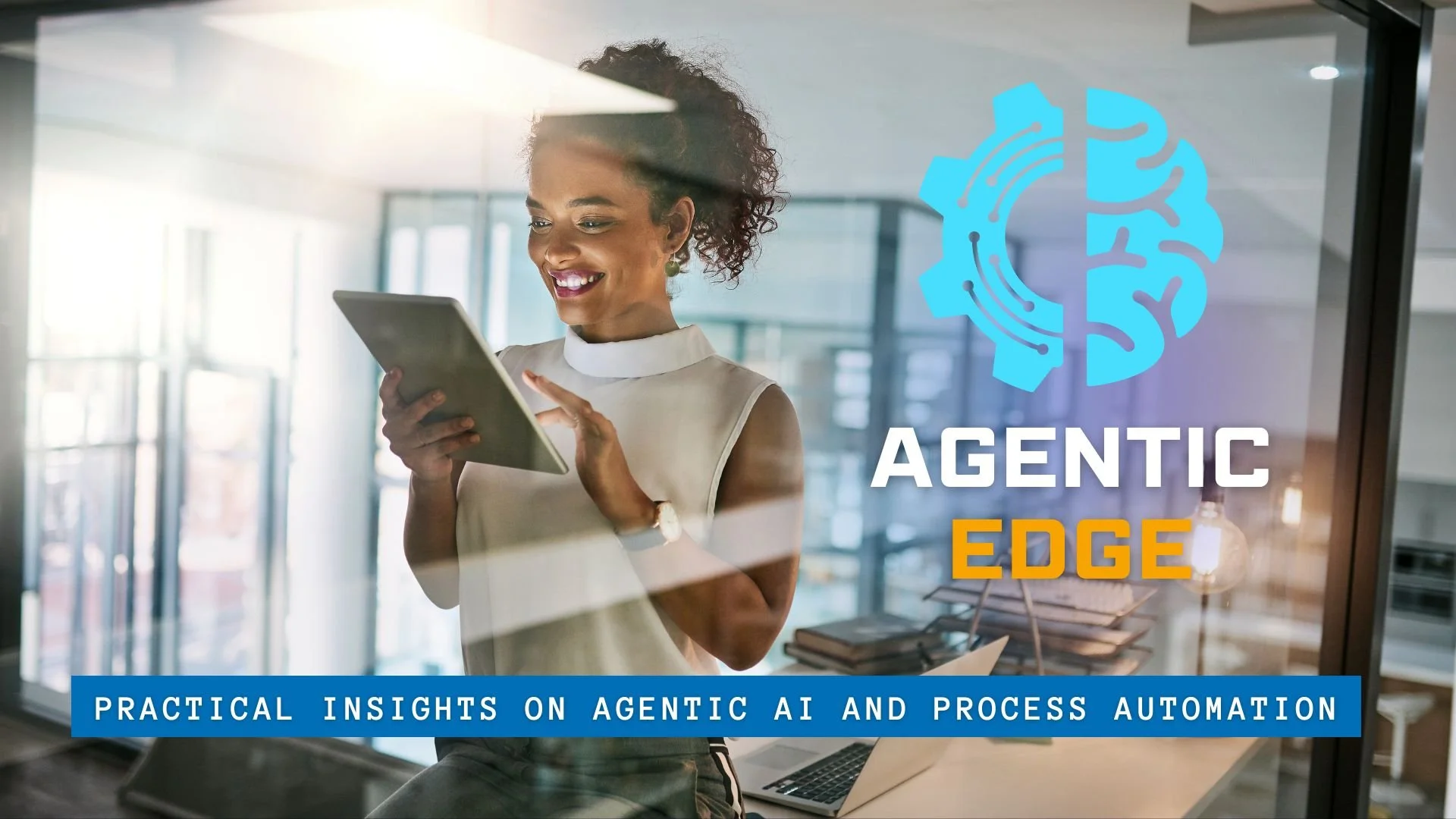
Scaling AI: From Pilots to Enterprise Impact
Many organisations succeed with AI pilots but stall when trying to scale. In this edition, we explore how to move beyond proofs of concept and build a digital workforce that delivers impact enterprise-wide.
Pilots are easy. Scaling is hard.
That’s the recurring theme we see with clients exploring Agentic Process Automation (APA). It’s relatively straightforward to prove a digital agent works in a single process. The real challenge is turning that success into an operating model, platform, and culture that can scale across the business.

Measuring Agentic AI Process Automation Success: The Metrics That Matter
Agentic Process Automation changes the way we work, but many organisations still measure it with outdated RPA-era metrics. In this edition, we highlight the KPIs that capture APA’s real value - from decision velocity to resilience and learning.

The Business Case for APA: Beyond Time-Saving
Agentic Process Automation is not just about reducing costs or saving time. In this edition, we explore how to build a modern business case for APA that includes decision velocity, compliance, resilience, and increased operational capacity.

The Tech Stack for Agentic Process Automation: Building a Scalable Foundation
What Tech Stack Do You Need for Agentic Automation? Agentic Process Automation (APA) needs more than bots and AI—it demands a layered, scalable, and adaptive tech stack. Discover the architecture used by real-world leaders to support intelligent agents, from data pipelines to observability and governance.

Agentifying RPA: The Smart Path to Agent Adoption
William Rae, a Senior Consultant at Virtual Operations, explores the concept of Agentifying RPA: a practical approach to unlocking value by adding agentic capabilities to existing intelligent automation. Based in the US, William partners with enterprise organisations to design automation strategies that deliver measurable ROI. With deep experience in both RPA and emerging AI technologies, he shares why the smartest path to adopting AI Agents isn’t to start from scratch - but to evolve what you already have.

Human Readiness: Empowering People in an Agentic World
Agentic Process Automation (APA) promises smarter, faster, more autonomous workflows—but it only works if your people are ready. In this edition, we explore how to prepare your workforce for a future of human–agent collaboration, covering mindset, skills, and change leadership.

What Your Operating Model Says About Your Agentic Process Automation Readiness
How fit is your current operating model for a future where intelligent agents handle core processes? In this article, we explore what needs to change in the way your teams are structured, governed, and incentivised to realise the full benefits of Agentic Process Automation (APA).

Stakeholder Engagement & Change Management: Bringing Everyone with You
Adopting Agentic Process Automation (APA) doesn’t just involve deploying a new class of intelligent tools. It requires shifting how people think about work, trust automation, and adapt to new roles in a changing environment.
And that makes stakeholder engagement and change management central to APA readiness.

Leadership & Vision: It Starts at the Top
The potential value of APA is immense. Done right, it can improve decision-making, boost productivity, and fundamentally reshape how work gets done. But unlike traditional automation initiatives that could be delivered in siloed departments, APA touches nearly every part of the business.
It affects people’s roles, how teams interact, how data flows, and how systems integrate. These are not changes that can be managed from the middle. They require clear direction from the top.

Are You Ready for Agentic Process Automation (APA)?
Agentic Process Automation (APA) is reshaping the future of work—but success starts with readiness. In this article, we explore what APA really is, why it matters, and the key areas your organisation must assess before adopting it. Cut through the hype and build a solid foundation for scalable, intelligent automation.

How AI Can Reduce No-Shows and Optimise Capacity in Hospitals
In our latest article, we explore how AI-driven automation is helping healthcare providers predict patient no-shows, optimise scheduling, and boost workforce efficiency — all while improving patient care.

AI Sentinels: The Guardians of Healthcare AI
AI is transforming healthcare, but how do we ensure it remains safe, ethical, and effective? Enter AI Sentinels—intelligent monitoring systems that supervise, validate, and adapt AI models to changing medical needs.
Prevent errors & bias in diagnoses
Ensure compliance with GDPR, HIPAA & regulations
Protect patient data & detect cyber threats
Adapt AI to new medical guidelines & discoveries
From cancer detection to pandemic response, AI Sentinels are revolutionising healthcare by making AI smarter, safer, and more accountable.

Transforming Diagnostics and Patient Care with AI in UK Healthcare
In our latest article, we dive into how AI is reshaping diagnostics and patient care. From tools that detect diseases faster and more accurately to personalised treatments and predictive analytics, the possibilities are groundbreaking.
Take Moorfields Eye Hospital, for example—their AI system diagnoses eye conditions with unmatched speed and precision, saving lives and easing the workload on healthcare professionals.
While challenges like data privacy and staff training persist, the progress is undeniable. AI is unlocking incredible opportunities to improve patient outcomes and build a smarter, more efficient healthcare system.

The Rise of Agentic AI and its Benefits for Healthcare Organisations
Agentic AI represents a revolutionary shift in artificial intelligence, characterised by its ability to operate autonomously, proactively address problems, and adapt to complex environments without constant human oversight. Unlike traditional AI systems, which follow predefined instructions to perform specific tasks, agentic AI is designed to make independent decisions, learn from its environment, and collaborate with other systems to achieve overarching objectives. This technological evolution is poised to transform healthcare, a sector increasingly reliant on advanced solutions to meet rising demands for efficiency, personalisation, and improved patient outcomes.

The Impact of Automation Technologies like RPA and AI on Healthcare Professionals’ Roles
The integration of automation technologies such as Robotic Process Automation (RPA) and Artificial Intelligence (AI) is transforming the healthcare landscape. While these innovations promise improved efficiency, accuracy, and patient outcomes, they are also reshaping the roles and responsibilities of healthcare professionals. This evolution presents both opportunities and challenges for the workforce, making it essential for professionals to adapt and embrace the change.

The Future of Automation in Transforming Telehealth for Healthcare Organisations
As technology continues to shape the healthcare industry, the integration of Artificial Intelligence (AI) and Robotic Process Automation (RPA) is transforming telehealth services. For healthcare organisations aiming to enhance patient outcomes, cut costs, and improve operational efficiency, these technologies are becoming indispensable. This article explores their pivotal role in telehealth and provides a case study of how Cleveland Clinic, a leading US healthcare provider, is leveraging AI and RPA.

How AI is Benefiting Electronic Health Records (EHR) in Healthcare
The integration of Artificial Intelligence (AI) in Electronic Health Records (EHR) systems has become a transformative force in the healthcare industry. As healthcare data volume grows exponentially, AI offers a way to harness data, making EHRs smarter and more useful for clinicians, patients, and administrators.

The Crucial Role of a Strategic Partner in Scaling and Maintaining Robotic Process Automation (RPA) Infrastructure
Learn why partnering with an innovative RPA support provider is essential for scaling and maintaining your automation infrastructure. Discover the benefits of working with a strategic partner that introduces automation, proactive VM management, and technology updates to reduce production support costs and improve operational efficiency.

Virtual Operations’ Control Tower Support Service continues its support contract to a Fortune 50 FMCG client for an additional 3 years.
We are thrilled to announce that Virtual Operations has renewed its contract with a Fortune 50 FMCG client for an additional 3 years. For several years, we’ve been the trusted strategic RPA production support partner, helping our client confidently scale their automation infrastructure. By their own estimates, our Control Tower RPA support service has saved them over $200 million in potential downtime.

How RPA Works Hand-in-Hand with AI: Navigating the Opportunities and Pitfalls
If you’re familiar with RPA and have automated five to ten processes, you’re likely hearing the buzz around AI and wondering where to start. The best approach is the classic methodology: think big, start small, and scale fast.
